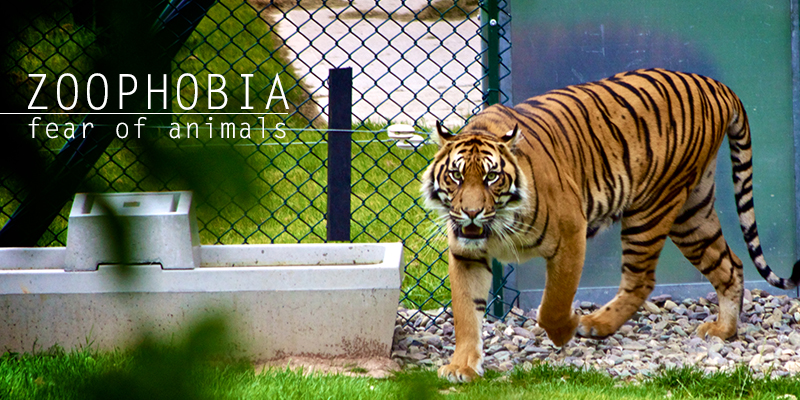When weekends arrived, we have all excitedly waited for a trip to the zoo at some point during our childhood. While some of us might enjoy the tantrums of animals, many others might be unimaginably afraid of them. The extreme fear and dread for animals of any kind signifies zoophobia in a person.

Zoophobia has been derived from Greek word “Zoo” which means animals. A zoophobic person shows irrational fear for animals, and might panic even looking at image of an animal. Zoophobia is a broad term, and may overlap with other phobias like Arachnophobia (fear of spiders), Scoliodentosaurophobia (fear of lizards), Ranidaphobia (fear of frogs), Ophidiophobia (fear of snakes), Kastaridaphobia (fear of cockroaches), Musophobia (fear of rats), cynophobia (fear of dogs), et cetera. A person can develop zoophobia for huge and dangerous wild animals or even harmless ones.
What Causes Zoophobia?
Two major cause factors known to be responsible for zoophobia in people are:
Evolutionary Factors
Human Evolution has a major contributing role in developing this kind of fear. Since early civilizations, animals have been taken as dangerous and harmful. It is like a natural defense mechanism humans have developed as a means of survival against animals. As generations passed, some animals got a spot in our households but many didn’t. However, the fear is still in-built in our genes and when it goes over the extreme, one can have zoophobia.
A traumatic Experience
Another major cause of zoophobia is any previous trauma associated with animals. If the person has been previously attacked or hurt by animals, or saw someone else getting hurt, then one can develop extreme fear and avoidance of animals.
Symptoms of Zoophobia
Zoophobia can occur both in children and adults. Major symptoms which indicate zoophobia are:
- Persistent and intense fear upon sight of any animal ( Even a picture can trigger anxiety in a person)
- Complete avoidance of any place with animals such as zoo
- Immediate reaction with screaming, crying and trying to run away
- Realization that the fear is irrational ( except in children)
- Repetitive thoughts of getting attacked by an animal
- Panic attacks with physical signs such as sweating, trouble in breathing, trembling, nausea or vomiting, abdominal uneasiness, racing heartbeat, dizziness or fainting
When to visit a doctor?
If the above symptoms have been occurring persistently for over a time period of six months, then you might have to consult with a doctor. Moreover, if your daily chores involve pets and animals, and fearing them has affected your behavior, getting a treatment would be the ideal thing to do.
How is Zoophobia treated?
Zoophobia can be treated using psychotherapies and medicines under the consultation of a mental health professional.
Exposure Therapy With Relaxation Technique
This is probably one of the most effective psychotherapies used in treating specific phobias. In exposure therapy, the person needs to withstand fearful situations involving animals or their images. The therapist also teaches relaxation techniques such as controlling breathing, mental visualization and meditation to cope with the anxiety during the exposure to animals. The major aim of exposure therapy is to slowly build toleration in the person towards their fear.
Cognitive Behavioral Therapy (CBT)
CBT is associated with modifying the thoughts and behavior of a person. The therapist has regular counseling sessions with the person in the context of the fear for animals, and tries understanding the inner thoughts responsible for it. The therapist guides the person in understanding the phobia, and building a positive behavior. Through regular sharing, the person will release the stress and anxiety, and develop more confidence to face their fear of animals.
Medicines
In severe cases, medications can also help with controlling the fear and anxiety. Commonly used medicines are anti-anxiety and anti-depressant drugs which balance brain chemicals such as Serotonin. Serotonin is responsible for the mood and temperament of a person.